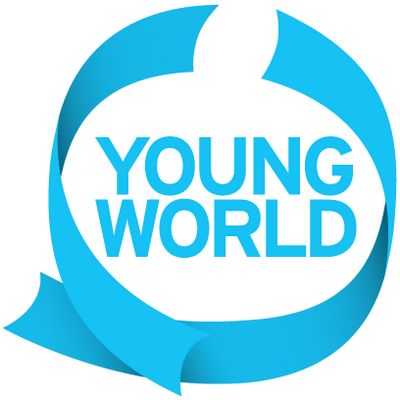Applicants are invited to submit their applications for Lead2030 Challenge for Goal 3 which is supported by AstraZeneca.
They have focused Lead2030 Challenge on SDG 3.4: to reduce by one third premature mortality from non-communicable diseases (NCDs) through prevention and treatment and to promote mental health and well-being. NCDs have emerged to become the number one cause of morbidity and mortality worldwide, killing more than 41 million people each year.
While they disproportionately impact people living in vulnerable or compromised situations, they are an issue for people everywhere. Young people are most at risk and they are also the point of great opportunity to change the trajectory of disease. Yet young people are seldom on the global health agenda. 70% of premature deaths from NCDs can be linked to behaviours and habits that form in adolescence.
Prevention becomes a critical tool to fight the burden of NCDs. Through their Young Health Programme they invest in education, advocacy and research to address the primary risk factors that lead to NCDs in later life.
Working with Plan International NGO, Founding partner of their Young Health Programme, they have designed a challenge to address the issue outlined above. Innovation and fresh thinking are required to meet the scale of the health challenges their young people face today.
Lead2030 Challenge is looking for health promotion ideas and projects to reduce risk behaviours in young people, such as smoking tobacco, misuse of alcohol, the impact of air pollution, lack of physical exercise and poor diet.
They want to support early innovation and will look in particular for projects that explore challenges and opportunities, generate ideas, develop and test ideas or make a business case. Through this project they aim to generate case studies and other evidence of promising approaches and to uncover opportunities for future collaboration and investment. They are looking for youth-led projects that are designed to be sustainable. Priority will be given to projects that are multi-sectoral and engage the public sector. Projects cannot incorporate treatment or medicine and must focus on prevention.
Theme
How do we fight the growing burden on non-communicable disease worldwide?
Eligible Fields
Tobacco Use and Alcohol Consumption
They encourage applications that work to:
Reduce tobacco use and exposure to tobacco smoke
Create tobacco-free environments
Reduce the harmful use of alcohol and its associated problems
Physical Activity
They encourage applications that work to:
Increase physical activity and exercise
Address causes of under-activity such as fear of violence and crime in outdoor areas; high-density traffic; low air quality, pollution; lack of parks, sidewalks and sports/recreation facilities.
Diet and Nutrition
They encourage applications that work to:
Improve access to healthy foods, by reducing the level of e.g. salt/sodium, saturated fatty acids and sugar in people’s diets
Increase the availability, affordability and consumption of fruit and vegetables
Limit excess calorie intake, reduce portion size and the energy density of foods
Inform and encourage healthy dietary practices
Mental Health
They encourage applications that work to:
Raise awareness and reduce stigma related to youth mental ill-health
Support early detection of mental health problems and sign-post towards counselling or medical services.
Pollution and Air Quality
They encourage applications that work to:
Encourage clean, healthy air quality practices, with a focus on children and youth
Expand understanding and awareness of the impacts of pollution and/or poor air quality on children and youth
Monitor and report on health trends and progress towards pollution and air pollution on children and youth
Benefits
The winning solution will receive
A US$50,000 grant from AstraZeneca
12 months of mentorship from a team of AstraZeneca professionals. The mentorship team will work to accelerate applicants solution based on the needs of their initiative or organisation, such as:
Business strategy
Best practices for data collection
Monitoring and evaluation
Product design
Eligibility Criteria
Aligned: Evidently aligned with the SDG4 challenge.
Youth-led: Founded by a person aged 18 – 30.
Focused: Well-structured time horizon, identified key stakeholders and beneficiaries, and proposed outcomes that are reasonable and well thought out.
Proven: Readily available, in or past implementation phase.
Impactful: Solutions must have a positive social impact, for example generating employment, or developing skills.
Measurable: Impacts of solutions must have been adequately measured and/or be measurable.
Financially viable: Must be able to achieve efficiency and to survive independently through the resources they generate and/or the investmen and donations they attract.
Scalable: Potential to perform as well or better after expanding in scope or size and/or being transported to other regions.
Charitable: Solutions must be registered as non-profits/charities or delivered through a registered registered non-profit/charity.
